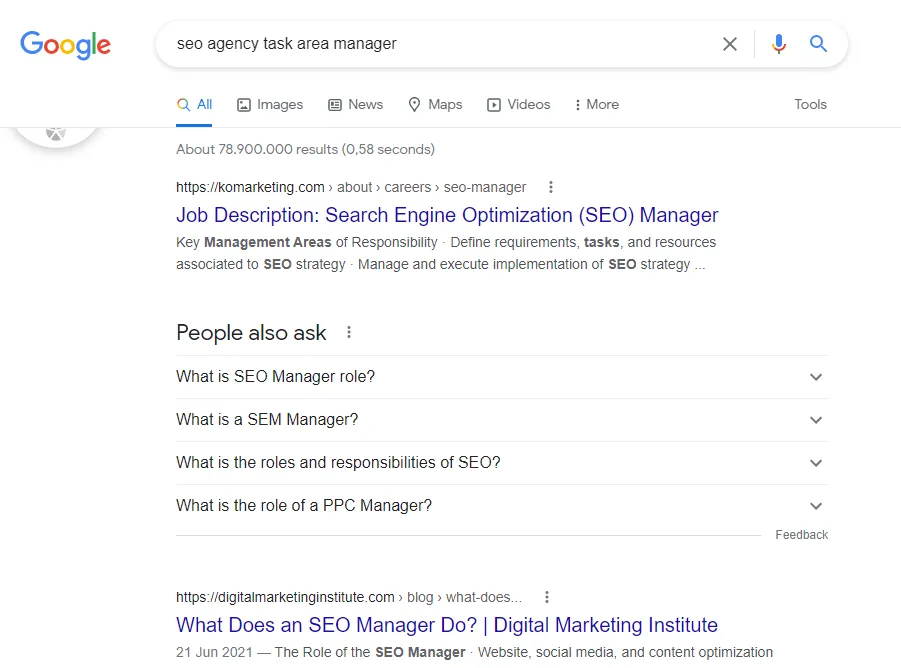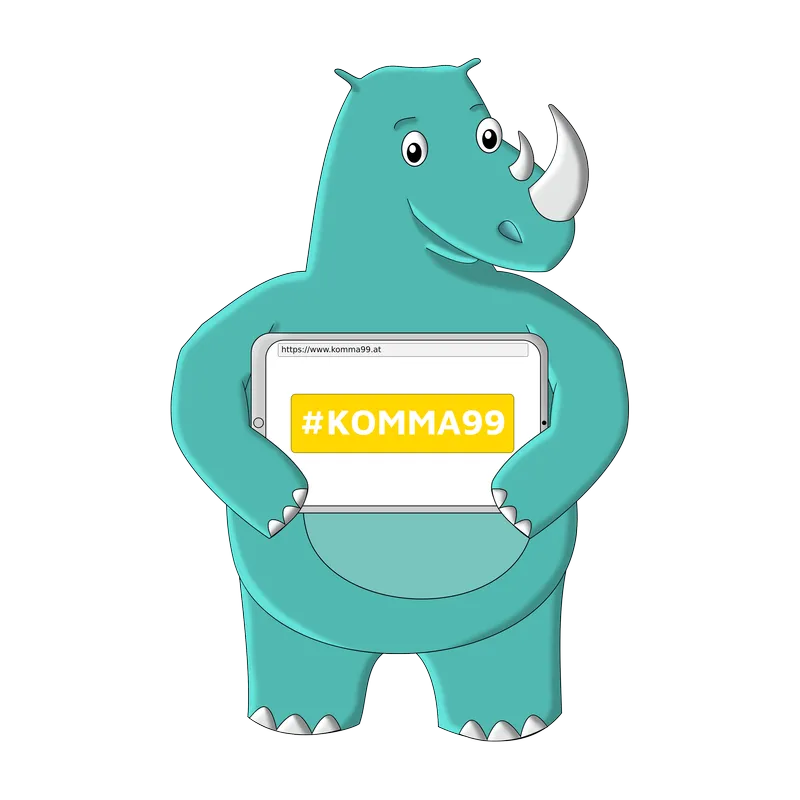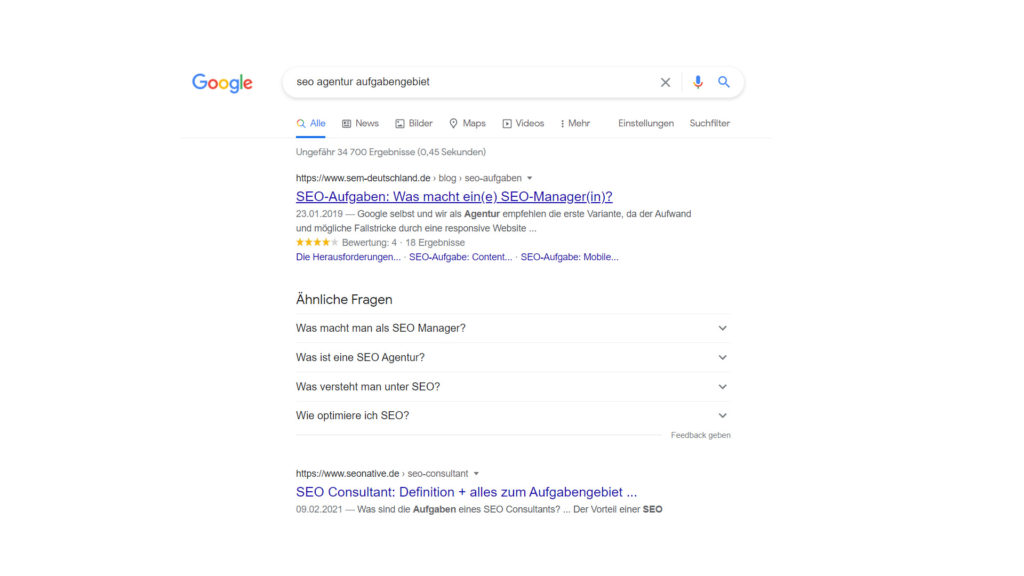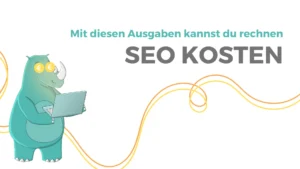How to find the right keywords using keyword research
What is a keyword?
A keyword (search term) is a the user in Google entered word, or several words strung together to get a desired search result. Thereby, a keyword can vary in the number of words and depends entirely on the search intention. A keyword research consequently describes the search for the appropriate keywords, to provide users with appealing search results, and at the same time improve the ranking on Google.
In the following we will give you a detailed overview of keywords and their characteristics and provide you with a basis for your own keyword research.
We want to help you find the right keywords by getting to know your users and what they want, asking the right questions, and developing a feel for keyword research and keywords in general.
Helpful keyword tools for keyword research
A variety of keyword tools are offered online that can help you build a good keyword research if you have the necessary background knowledge. Below we briefly describe our favorites, some of which we have already written our own blog articles about in detail. We divide here into free and paid keyword tools.
But you have to be aware in advance that free keyword tools offer you less features than paid ones. For a small keyword research, however, sometimes free keyword tools are enough, especially if you only dive into the world of keyword research once and it is not your daily companion.
Free Keyword Tools
As SEO professionals, we are of course of the opinion that it pays to invest in keyword research, because the better your keyword foundation, the better then your keyword house. Despite this, we list you here a few free and very good keyword research tools that may help you:
- Keyword Shitter Tool
- Answer The Public ← to the blog article
- Ubersuggest Tool
- and more
Paid keyword tools
There are a lot of paid tools on the market, and we have our clear favorites. The tools are real heroes not only because of the price-performance ratio, but also because of their good structure and the generated outcome:
- KWFinder Tool ← to the blog article
- and more
The properties of keywords
In general, many different factors play a role in keyword research on the way to success. You can define keywords for both SEO (search engine optimization) and SEA (Google Ads) that differ significantly in their use.
The search volume is crucial in both cases. The search volume describes namely how often a term is searched by customers - High search volume does not mean, however, the same that it is a suitable keyword.
The Clicks Per Search also play a significant role. They tell us how many results a user clicks on per search
In addition, the click potential is decisive for the success of a keyword - Are for the keyword Featured Snippets, Google Ads ad, etc. switched?
Generally, word count, search intention and conversion rate in connection with the landing page are additional important factors that should be taken into account during keyword research.
Specifically in the SEA context, the cost per click plays a role, which describes how much a customer click costs in AdWords.
| Here we summarize all the important keyword properties again:
Search volume - Describes how often the keyword is searched. Clicks Per Search - Describes how many results are clicked per search. Click Potential - Examines whether organic search is influenced by Featured Snippets, Google Ads ads, etc. Cost per Click - Defines how much a click on the page costs in the Google Ads context. Word count - Defines the number of words in the search term. Search Intention - Describes what the goal of the search is (purchase, information, ...). Conversion Rate - The percentage of users who reach the website through the keyword and purchase an offered product. |
Keyword types
The characteristics of keywords and search terms determine their function and effect in search engine optimization. However, different types of keywords can also be distinguished, depending on the number of words and search volume:
- Long tail keywords
Example keyword: keyword research term definition
Low search volume, specific, high conversion rate
- Mid-Tail Keywords
Example Keyword: SEO Agency Vienna
Medium search volume, average conversion rate
- Short-Tail Keywords
Example keyword: SEO
High search volume, in general, low conversion rate
Categorize keywords into benefits
Not only the number of words and search volume define the keyword, but also the benefit it has. If you type "SEO agency field of activity" or "SEO agency Vienna" into Google, you will come across very different search results. The first keyword will provide you with information, the second one may provide you with job ads or the websites of different agencies.
Therefore, it is especially important to define what benefit the selected keyword pursues:
| Informational search queries - "SEO agency scope of work"
These keywords lead to information related to issues and are not set to sell. Navigational search queries - "SEO Agency Vienna" These keywords lead to a website. From there, a transaction can take place, but also information can be searched. Kommerzielle Recherche Suchanfragen - "Keyword Tool" With this keyword, the customer gets a rough overview of the offer. A purchase is already considered. Transactional search queries - "Buy Keyword Tool" These keywords lead directly to the product or service and, optimally, lead to a sale. |
Of course there is still a variety of other search queries with different benefits. But these four categories are particularly important for keyword research and work with keywords.
Now we have together laid the foundation for understanding keywords. You now know what keywords are, and how they can differ with different characteristics. But to start the keyword research, it still needs a crucial knowledge, and that is the knowledge about the intentions of your customers.
Understanding the customer - finding meaningful keywords
We want to show you that it doesn't take a lot of money or obsessive searching to find useful and profitable keywords and optimize your site for those keywords.
 |
Our Tip: Invest in a few keywords that are sure to pay off rather than picking up a variety of incorrect and inappropriate keywords. |
The trick behind this is understanding your brand, your product, but at the same time understanding your customers and their search intent, questions and buying decision.
The search intention
About the search intention is to say for now that Google is guided by its users - what users are looking for, find and click - if the keywords match the search intention of the page, so the result will also be displayed at the top of Google. Google wants satisfied users, and we want to convince Google with our keywords that our page will make users satisfied.
We have already learned the intentions behind search results of users, but often there are main intentions and secondary intentions. These can be formulated implicitly or explicitly - speak only in one word or described in a whole question.
How do I understand the search intent of the user and create meaningful keywords and appropriate content? Simple - Enter your keyword in Google and then examine very closely the first page in Google and the SERP features displayed. You will quickly see what users expect and what they want to achieve with their search by keywords.

Here is a small example: The user enters "seo agentur aufgabengebiet" and the first search result is a blog article and SERP features. From this we can see that the user wants to get information with this keyword (informational keyword). Blog articles or guides are the number one content type when it comes to providing the user with a list of information.
If you convince the user with information on your website, your brand remains in the memory and may be called at another time (navigation-oriented search queries). Informational keywords do not bring sales per se, but they strengthen your brand on Google and for the user through your website.
Create a Buyer Persona
Who is your customer? What age group does he fall into? Does he have a family of his own, in what industry does he work? If you create a buyer persona, you get to know your customer and can estimate how he acts and when. This outline of a person can help you better understand your product and brand, and also market them efficiently on your website
Let's take our example keyword again: "seo agentur aufgabengebiet".
Our customers in this case probably already know something about Google and its functions, otherwise they would not know what "seo" means. They are interested in the functions of Google and perhaps want to become active in the field themselves.
This would be a short description of the buyer persona for the keyword mentioned. This can be defined many times more precisely and divided into different focal points.
The Customer Journey in 5 steps
The Customer Journey ties in with the Buyers Persona. Through them, you can track what steps the customer or user goes through to get to the actual purchase:
|
As you can see from this example, a perfect customer journey can run like this. It is important that you convince your customers, but not obviously sell them your product. You lay the foundation for this with good keyword research.
What does your customer want? - Determine the content type
From the search intention and the buyer persona you can now take the right direction for your keyword research for your website. Do you notice that your customer is more interested in information and needs it to make a purchase? Then a blog article with focus on one keyword can help you. But maybe your customer wants to compare different products or services - Then you know that you should design your most interesting. No matter in which direction the journey goes, always be clear what exactly you want to achieve with your content and which keywords suit you.
 |
Different content types can be:
Landing Page Performance page Blog article (like this one) Store page (categories or products) Glossary page |
Take inspiration from other providers and recognize the structure of Google and keywords through your own research with randomized keywords.
You will quickly see what Google expects from you and your keyword and consequently what your target audience expects.
Keyword research step by step
If you've read this far, you already have a good foundation for planning your own keyword research. You've gained an overview of the most important keyword characteristics, you understand your customer and you've learned a few practical tools.
But now it's down to the nitty gritty - getting your own keyword research up and running.
1. Collect ideas
First, brainstorming and collecting ideas is important. Here you focus on the search intent and ask yourself "What goals do my ideal customers have?", "What solutions are they looking for?" and "What questions do they have?".
Your goal here is to create a long list of ideas and inspiration to build upon.
2. Collect keyword ideas
Now we'll collect actual keyword ideas based on our brainstorming from step one. Here you have 3 options:
- Suggest functions on Google for a first overview
You can simply type a word into Google and it will suggest many keywords that you have already searched for. So you get a quick overview, which does not go into detail - but this can help you to orient yourself.
- Keyword Research Tools
If you have made a rough overview, then you can search more specifically using the keyword tools. Our blog article on KWFinder can help you further. In KWFinder you will be shown immediately a keyword analysis of all ideas, including search volume, strength of competition, CPC, etc..
- Keywords by the competition
Also through your competition online you have the possibility to find more keywords. SEO tools like SEMRush and Ahrefs are your constant companions. So you get an overview of other possible keywords and can additionally support your own research.
3. Sorting out, sorting and filtering
Now you will have a list of different keywords in front of you, which you should sort out. Analyze this list of keywords carefully and, if necessary, eliminate duplicate keywords or meaningless variants.
Export all keywords from your various tools and help yourself with a colored structure of these. You will quickly generate an overview and probably certain keywords will already stand out for the next step.
4. Main keywords and the clusters
Certain keywords will stand out because they cluster or include many other keywords. Here's how you proceed - you structure your research around a main keyword that summarizes and clusters keywords.
This step is inevitable because:
- With your main keyword you will probably rank for the secondary keywords as well.
- You cover different search intents and language styles, which means you rank better for your main keyword.
- You give Google a good structure and the search engine can rank you thematically.
- And last but not least, this is how you find variants for your main keyword so as not to overwhelm your user/customer with it.
Answer the Public is a great tool for this - We even created a whole blog article for it for you.
Conclusion - A keyword research pays off
With our article you are now well prepared for an upcoming keyword research with the right tool. You can relax and use our guide to create suitable content and inspire your customers and users.
Did our blog entry inspire you? Then take a look at our other entries - maybe we can help you with our offered topics.
We hope we could give you a good overview with this blog and you now feel prepared for your own keyword research!













